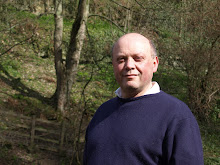One of the joys of being Chairman of the college is that I am privileged to see how general practice is delivered across the length and breadth of the country (and pinch some of the good ideas for my own practice). There is lots of good work going on, and in particular this week, I was energized by my visit to Tower Hamlets PCT. I met with the directors of the PCT and was impressed by the collaborative work taking place, particularly between their Chief Executive Alwen Williams, Medical Director Doug Russell and their colleagues. Dr Victoria Tzortziou Brown, a member of our council and a local GP, had invited me over. At a time where we hear that the London SHA are coming up with silly ideas of reducing consultation times to eight minutes, it was reassuring that in this PCT they want to support GPs and recognise that spending longer with patients who are complex and have a number of co morbidities is the way forward. It was impressive to see their managers and doctors working together to provide excellent and innovative care for their patients 24 hours a day.
There is a certain irony in the fact that the view from the Chief Executive’s office window is dominated by the behemoth that is Bart’s Hospital. The provision of care is often dominated – both physically and professionally – by the specialists and the specialties, but there is a growing and strong feeling that GPs need to get more involved in commissioning care, so that we can get more high quality care into the community. It seems that this is happening in Tower Hamlets.
On the same theme – I went back to Croydon last week to meet with Dr Agnelo Fernandes, our RCGP Clinical Champion in Urgent Care and was inspired by the excellent work that is taking place. The individual GPs in Croydon and their GP Federation are doing great things, including their award-winning work improving access to diagnostics. The Croydon GP Federation just demonstrates how collaborative work – even across many practices – gives excellent benefits both for individual patients and the population as a whole.
I’ve been doing a number of surgeries this week and I was delighted that a woman we resuscitated at Bellevue managed to get out of hospital and came back to see me. She couldn’t remember any of the drama that unfolded, but she certainly looks better. Her case gave me a real sense of the excellent work that can be achieved when the practice team work together for the benefit of our patients.
Having a relationship with the media has its benefits, and its inevitable pitfalls, and this week I’ve been misquoted a few times in the medical press. It’s unfortunate sometimes that in supporting an idea, you can be misinterpreted. I firmly support the Cancer Reform Strategy, and Mike Richards’ work. But I think that if you look at the statistics – and by that I mean the Cancer Outcomes of one year and 5 years – we can do better. This isn’t an issue about bashing GPs around the head which is how it came across in the press, it’s about everybody doing as much as we possibly can to get patients to approach us when they have relevant symptoms and then either refer or investigate as appropriate and as quickly as possible. One of the things I think is a good idea is the Critical Events Analysis – sometimes called Significant Event – when someone is diagnosed with a cancer. It’s important to ask: Is there anything we could have done better? Could the hospital have worked more efficiently?
The Out of Hours debate continues, and I am hoping that the Report, produced by myself and David Colin-Thomé for the Minister will be published in the next couple of weeks. What has been heartening throughout this debate is how the three leading UK political parties have praised the role of GPs, in and out of hours. There has, however, been a bit of a setback with regard to 5-year GP Training, and there is still some work to do to convince out specialist colleagues that we need longer training to prepare GPs for the numerous extra responsibilities they now take on as more care moves into primary care. The College’s curriculum ensures that good GPs enter practise, but many tell us that they’re not confident in their work and not gaining crucial experience in key areas, for example in the treatment of acutely ill children. But we will soldier on in the knowledge that all of the international evidence agrees that by having the right number of GPs in the right place at the right time, patient care is better and less expensive than secondary- or tertiary-dominated care. These are points that I also raised to the NHS Chief Executive David Nicholson and Jim Easton Director General Jim Easton, who has the remit for finding savings, while improving quality and productivity.
Well, it’s the end of a busy week, I’ve finished this afternoon’s surgery a bit late, but I’m looking forward to a restful weekend, and a win for the Baggies.
As always, I value your opinions and feedback enormously, and I urge you to get in touch if you have any comments or questions for me.

No comments:
Post a Comment